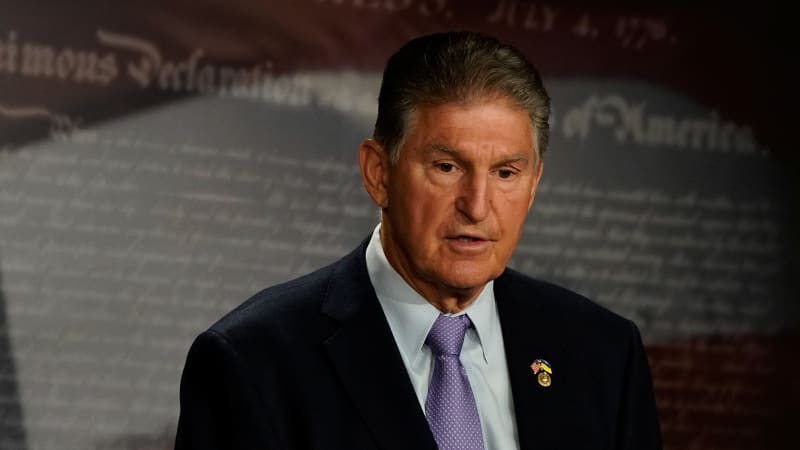U.S. Senator Joe Manchin, a Democrat who chairs the chamber’s energy panel, asked the Treasury Department on Tuesday not to allow a commercial electric vehicle tax credit to be used for consumer leasing, rental cars or ridesharing vehicle sales, rejecting a broad interpretation of the credit.
Reuters first reported last week the push by South Korea and some automakers that asked the Treasury Department to allow use of the commercial electric vehicle tax credit to boost consumer EV access as well as for the purchase of ride share and rental car vehicles.
The $430 billion U.S. Inflation Reduction Act (IRA) passed in August ended $7,500 consumer tax credits for electric vehicles assembled outside North America, angering South Korea, the European Union, Japan and others.
The climate bill also imposes significant battery minerals and component sourcing restrictions, sets income and price caps for qualifying vehicles and seeks to phase out Chinese battery minerals or components. The commercial credit known as “45W” does not, however, have the sourcing restrictions of the consumer credit called “30D.”
“Some automakers and foreign governments are asking your agency for a broad interpretation of 45W that would allow rental cars, leased vehicles, and rideshare vehicles (such as those used for Uber and Lyft), a huge piece of the U.S. vehicle market, to be eligible for the full $7,500 commercial vehicle credit as a way to bypass the strict sourcing requirements,” Manchin, who chairs the Energy Committee and largely wrote the EV tax credit rules, said in a letter to the Treasury Department, which did not immediately comment.
Manchin said if successful in the interpretation “companies will focus their attention away from trying to invest in North America to meet the requirements of 30D and will instead continue with business as usual, putting our transportation sector further at risk.”
Manchin said he recognized “many of our allies may be upset at the strong domestic sourcing requirements included in the IRA and are looking for a way around them. Let me be clear, this bill was not designed to hurt any of our allied partners, but it was designed to help this country and make us stronger.”
Toyota said last week “the lack of criteria to qualify for (commercial credits) could undermine the IRA’s goals to expand domestic production of EV batteries and maintain America’s energy independence.”
Hyundai and Kia want the U.S. Treasury to allow people leasing EVs to benefit from commercial credits and to qualify for up to a $4,000 tax credit for used EVs if they buy vehicles when leases expire.
Reporting by David Shepardson; editing by Grant McCool

